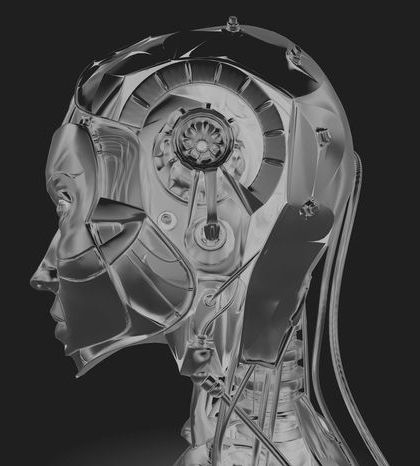Ice is one of the most significant hazards to drivers and pilots and is blamed for multibillion-dollar losses each year in the US. Ice causes all manner of delays in air travel and damages infrastructure, power generation equipment, and power transmission facilities each year. Scientists from the University of Houston have made a breakthrough in repelling ice that could have uses in multiple industries.
Get the latest international news and world events from around the world.

Inside China’s Future Factory | Hello World Shenzhen: Part One
Over the past 40 years, the fishing village of Shenzhen has been reborn as a futuristic metropolis bursting with factories. Bloomberg Businessweek’s Ashlee Vance travels to the heart of China’s tech revolution to witness this new reality firsthand, as part of a three-episode exploration of the city. In part one of Hello World Shenzhen, Vance gets a worker’s view of life in a startup and then explores one of the city’s famous electronics markets to learn how people survive (and in some cases make fortunes) in such a frenetic, competitive environment.
https://www.bloomberg.com/hello-world
Credits:
Creator & Host
Ashlee Vance
Director
David Nicholson
Producer

A Review of the Potential of Phytochemicals from Prunus africana (Hook f.) Kalkman Stem Bark for Chemoprevention and Chemotherapy of Prostate Cancer
Prostate cancer remains one of the major causes of death worldwide. In view of the limited treatment options for patients with prostate cancer, preventive and treatment approaches based on natural compounds can play an integral role in tackling this disease. Recent evidence supports the beneficial effects of plant-derived phytochemicals as chemopreventive and chemotherapeutic agents for various cancers, including prostate cancer. Prunus africana has been used for generations in African traditional medicine to treat prostate cancer. This review examined the potential roles of the phytochemicals from P. africana, an endangered, sub-Saharan Africa plant in the chemoprevention and chemotherapy of prostate cancer. In vitro and in vivo studies have provided strong pharmacological evidence for antiprostate cancer activities of P. africana-derived phytochemicals. Through synergistic interactions between different effective phytochemicals, P. africana extracts have been shown to exhibit very strong antiandrogenic and antiangiogenic activities and have the ability to kill tumor cells via apoptotic pathways, prevent the proliferation of prostate cancer cells, and alter the signaling pathways required for the maintenance of prostate cancer cells. However, further preclinical and clinical studies ought to be done to advance and eventually use these promising phytochemicals for the prevention and chemotherapy of human prostate cancer.
Prostate cancer is one of the most common nonskin cancers in men. It is caused by unregulated prostate cell division, which leads to abnormal growth, with the potential to spread to other parts of the body [1]. These neoplastic cells originate from highly specialized cells through a process of regression to an advanced stage. Unlike the normal parent cells, these cells divide continuously, resulting in a tumor. Approximately, 9–11% of men are at risk of clinically suffering from prostate cancer in their life time [2–5]. Prostate cancer is typically androgen-dependent during its initial stages when the hormone androgen binds to the androgen receptor (AR) and then transactivates target genes [6, 7]. Androgen and AR-mediated signaling are therefore crucial for the development and functioning of both the normal prostate and prostate cancer.

SLS Liquid Hydrogen Tank Test Article Loaded into Test Stand
The structural test article for the liquid hydrogen tank, a component of the #NASASLS core stage, has been loaded into its new home, a test stand at NASA’s Marshall Space Flight Center in Huntsville, Alabama. The 149-foot piece of test hardware will go through rigorous testing simulating the stresses of liftoff and flight. MORE.
The largest piece of structural test hardware for America’s new deep space rocket, the Space Launch System, was loaded into Test Stand 4693 at NASA’s Marshall Space Flight Center in Huntsville, Alabama Jan. 14, 2019. The liquid hydrogen tank is part of the rocket’s core stage that is more than 200 feet tall with a diameter of 27.6 feet, and stores cryogenic liquid hydrogen and liquid oxygen that will feed the vehicle’s RS-25 engines. The liquid hydrogen tank test article is structurally identical to the flight version of the tank that will comprise two-thirds of the core stage and hold 537,000 gallons of supercooled liquid hydrogen at minus 423 degrees Fahrenheit. Dozens of hydraulic cylinders in the 215-foot-tall test stand will push and pull the tank, subjecting it to the same stresses and loads it will endure during liftoff and flight.
Image Credit: NASA/Tyler Martin
Editor: Jennifer Harbaugh


The Independent Core Observer Model Computational Theory of Consciousness and the Mathematical model for Subjective Experience
Graeme Ross: “Once again the over-riding need to measure the immeasurable raises it‘s ugly head. Statistics are proof of ignorance. Numbers are not knowledge. It has been mooted that we are a mental construct that incorporates multiple persona in our subconscious and semi-conscious mind. Find the theory for yourself. I wont quote what you can find yourselves. If we are a construct, ever-changing, ever-evolving in complexity and moment-to-moment inner focus, and if, as it has been mooted, we have constant and endless conversation with these ever-changing inner mental persona, then it follows that without capturing that process in mid-flight (as it were) we can‘t deduce the reasoning that results from these conversations. Therefore we are not able to quantify these processes in any way at all. It is ephemeral. Thought takes place in the interval between knowing and asking. Trying to build a machine that will think would take far more resources than mankind will ever possess.”
Abstract: This paper outlines the Independent Core Observer Model (ICOM) Theory of Consciousness defined as a computational model of consciousness that is objectively measurable and an abstraction produced by a mathematical model where the subjective experience of the system is only subjective from the point of view of the abstracted logical core or conscious part of the system where it is modeled in the core of the system objectively. Given the lack of agreed-upon definitions around consciousness theory, this paper sets precise definitions designed to act as a foundation or baseline for additional theoretical and real-world research in ICOM based AGI (Artificial General Intelligence) systems that can have qualia measured objectively.
Published via Conference/Review Board: ICIST 2018 – International Conference on Information Science and Technology – China – April 20-22nd. (IEEE conference) [release pending] and https://www.itm-conferences.org/
Introduction The Independent Core Observer Model Theory of Consciousness is partially built on the Computational Theory of Mind (Rescorla 2016) where one of the core issues with research into artificial general intelligence (AGI) is the absence of objective measurements and data as they are ambiguous given the lack of agreed-upon objective measures of consciousness (Seth 2007). To continue serious work in the field we need to be able to measure consciousness in a consistent way that is not presupposing different theories of the nature of consciousness (Dienes and Seth 2012) and further not dependent on various ways of measuring biological systems (Dienes and Seth 2010) but focused on the elements of a conscious mind in the abstract. With the more nebulous Computational Theory of Mind, research into the human brain does show some underlying evidence.
Siemens ‘Aptio Automation’
Advocate Aurora ACL Laboratory will be utilizing APITO fully automated technology:

Chaos in the body tunes up your immune system
Chaos in bodily regulation can optimize our immune system according to a recent discovery made by researchers at the University of Copenhagen’s Niels Bohr Institute. The discovery may prove to be of great significance for avoiding serious diseases such as cancer and diabetes.
Wide gaps exist in our understanding of how the immune system works and how we might avoid diseases such as cancer and diabetes. Now, two researchers at the University of Copenhagen’s Niels Bohr Institute have made a discovery that could prove to be an important piece of the puzzle. PhD Mathias Heltberg and Professor Mogens Høgh Jensen have found an entirely new mechanism in the way that bodily cells regulate themselves — through chaos.
The researchers investigated how a particular protein produced within cells, NF-kB, stimulates genes. Among other things, this particular protein is vital for maintaining the body’s immune defense system and thereby, the body’s ability to combat disease. The concentration of NF-kB fluctuates over time, and these swings impact the genes and subsequently, the condition of cells.

Unintended side effects: antibiotic disruption of the gut microbiome dysregulates skeletal health
Microbes are often seen as pathogens that cause disease and antibiotics have been used successfully to combat these foreign invaders. In reality, the picture is more complex. Most of the time we live in harmony with our commensal gut microbiota, which is the collection of microorganisms colonizing the healthy gut. Commensal bacteria regulate host biological functions, including skeletal health. Researchers at the Medical University of South Carolina (MUSC) studying osteoimmunology, the interface of the skeletal and immune systems, have examined the impact of disrupting the healthy gut microbiome with antibiotics on post-pubertal skeletal development. Their results, published online on the January 16, 2019 in the American Journal of Pathology, showed that antibiotic disruption of the gut microbiota induced a pro-inflammatory response that led to increased activity of osteoclasts.
“This report introduces antibiotics as a critical exogenous modulator of gut microbiota osteoimmune response during post-pubertal skeletal development,” says Chad M. Novince, D.D.S., Ph.D., assistant professor in both the Colleges of Medicine and Dental Medicine who studies the impact of the microbiome on osteoimmunology and skeletal development. “People have shown that antibiotics perturb the microbiota, but this is the first known study evaluating how that has downstream effects on immune cells that regulate bone cells and the overall skeletal phenotype. This work brings the whole story together.”
The post-pubertal phase of development is a critical window of plasticity that supports the accrual of approximately 40 percent of our peak bone-mass. Recent work by the Novince lab and others has shown that the gut microbiota contributes to skeletal health. To determine the impact of antibiotic perturbation of the gut microbiota in post-pubertal skeletal development, Novince worked with team members at MUSC and treated mice with a cocktail of three antibiotics. In collaboration with microbiome scientist Alexander V. Alekseyenko, Ph.D., associate professor in the Biomedical Informatics Center and founding director of the MUSC Program for Human Microbiome Research, they were able to show that antibiotic treatment led to major alterations in the gut microbiota, resulting in specific changes to large groups of bacteria.